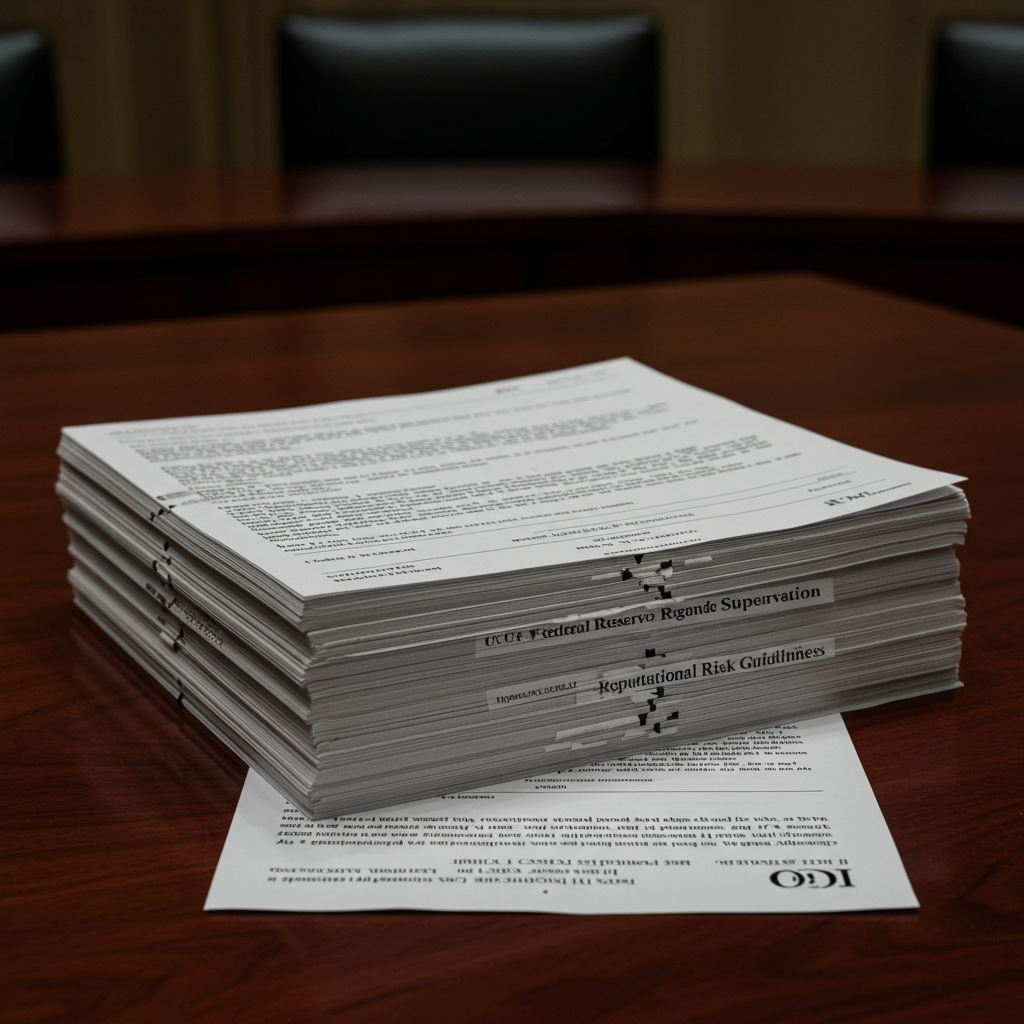Major Shift in Bank Supervision Approach
The U.S. Federal Reserve has announced a significant change in how it supervises banks, directing its examiners to stop considering “reputational risk” during their assessments of financial institutions. This marks a notable shift away from a broader, more subjective approach to bank oversight.
As part of this policy change, the Fed is removing all references to reputational risk from its supervisory manuals and other relevant documentation used by examiners.
Defining Reputational Risk in Banking
Previously, the Federal Reserve defined “reputational risk” for banks as the potential for harm to a bank’s business operations. This harm could stem from negative public opinion, adverse publicity, or even the likelihood of costly litigation resulting from such public perception.
Supervisors historically assessed this risk alongside traditional financial risks like credit risk or market risk.
Why the Change? Industry Concerns Led the Way
This decision comes largely in response to persistent complaints from the banking industry. Banks argued that evaluating reputational risk was problematic and often subjective.
Key concerns raised by the industry included:
Subjectivity: Assessments were often based on supervisors’ individual judgments about what activities were “suitable” for a bank, leading to inconsistent or arbitrary findings.
Penalizing Legal Activities: Banks contended that they could be penalized by examiners for engaging in activities that were entirely legal and did not inherently pose a direct financial risk.
- Lack of Clear Standards: The criteria for evaluating reputational risk were perceived as vague, making it difficult for banks to understand and comply with supervisory expectations in this area.
- uk.finance.yahoo.com
By dropping this standard, the Federal Reserve is aligning its supervisory practices with other major U.S. bank regulators, including the Office of the Comptroller of the Currency (OCC) and the Federal Deposit Insurance Corporation (FDIC), which have reportedly also moved away from this specific examination focus.
Focusing on Core Financial Risks
The move indicates a strategic refocusing of supervisory efforts towards more specific and quantifiable financial risks. Examiners will now concentrate more narrowly on metrics and activities that directly impact a bank’s financial health and stability.
However, the Federal Reserve has clarified that this change does not mean banks can ignore reputational concerns. The Fed still expects financial institutions to maintain robust overall risk management frameworks. While examiners won’t police reputational risk explicitly, banks are still expected to consider such factors internally when making business decisions and developing their own comprehensive risk strategies.




